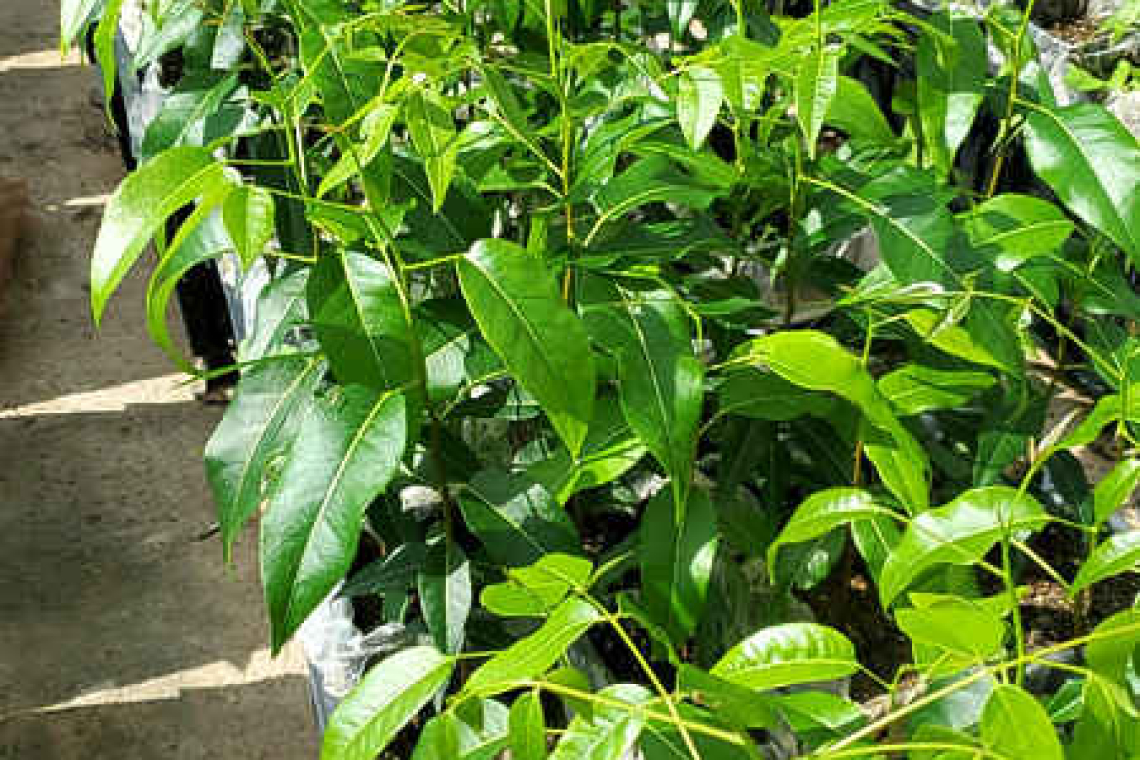Thriving 10-week-old Jamaican mahogany plants at the Tulloch Estates nursery.
KINGSTON, Jamaica--The current shortage of mature Jamaican mahogany trees in the region could soon be a thing of the past, as recent scientific research has led to large-scale propagation of true-to-type seedlings, according to a press release from the Jamaica Forestry Department.
Experts agree that the development is anticipated to be a boon for Jamaica’s economy through the lumber and forestry sectors, as the country could become a large exporter of authentic Jamaican mahogany.
The mahogany genus, which has three species, is a medium-size semi-evergreen growing to 30-35 metres (98-115 feet) tall. It produces straight-grained, reddish-brown timber that is highly sought after due to its colour and durability. One of the three species, scientifically called Swietenia mahagoni, is native to the wider Caribbean, including Jamaica, Cuba and The Bahamas, but it is now near-threatened due to excessive land clearance and cutting for furniture making, the release states.
To avoid further risk, efforts to re-commercialise the species will have to ensure compliance with the global frameworks designed to regulate international trade of wildlife and timber – the Convention on International Trade in Endangered Species of Wild Fauna and Flora (CITES) and the European Union Timber Regulation (EUTR) standards.
It is within this context that RISE Life Management Services (RISE), under the European Union-funded Improved Forest Management and Livelihoods for a Better Jamaica (IFMAL) project, spearheaded a DNA analysis to isolate and propagate the native Jamaican species. This was done in partnership with Tulloch Estates and the Forestry Department.
The analysis confirmed that 35 local mahogany trees were not hybrids as they did not feature DNA material from the Honduran species, Swietenia macrophylla, which is native to Mexico, Central America and northern South America, according to the release.
Under the IFMAL project, a nursery was established at Tulloch Estates to grow the certified seedlings. Owner of Tulloch Estates, Roger Turner noted that prior to the study, there was uncertainty about the genetic identity of mahogany seedlings on the island.
“The status before the analysis is that we had mahogany trees that appeared to be true-to-type but we had no proof that the seeds were true-to-type and would bear lumber that was true Jamaican mahogany. Before, no one could say with any certainty what would happen if we planted the current seedling,” he said.







